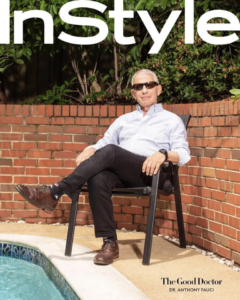 The 2020 United States Conference on AIDS has over 3,300 registrations. Please be sure to register for free before we reach 4,000.
The 2020 United States Conference on AIDS has over 3,300 registrations. Please be sure to register for free before we reach 4,000.
Dr. Anthony Fauci* will keynote the Federal Plenary on Tuesday, Oct 19th. The session will ask our federal leaders for the next steps in our efforts to end the HIV epidemic. COVID-19 has changed everything, including the way we provide HIV prevention and care.The good doctor does not need to hear from me that a movement stands behind him. I am so proud of the way the HIV infrastructure is being used to fight COVID-19. The COVID-19 Prevention Trials Network is a merger that includes the HIV Vaccine Trials Network (PVTN), the HIV Prevention Trials Network (HPTN), and the AIDS Clinical Trials Group. This clearly documents the value of our country’s investment in HIV and why Congress must increase HIV funding. Here is more information if you are thinking about volunteering to be part of a trial. As we learned on last week’s webinar from Dr. Stephaun Wallace, they need a diversity of people to volunteer for these trials, including People Living with HIV.
What We’ve Learned from Attending Other Virtual Meetings
 Virtual meetings are new to most of us. Recent experiences showed NMAC that training in advance on the conference platform is vital to a good conference experience. USCHA will use multiple training tools including online manuals, webinars, and real people to provide technical support. The next two USCHA webinars will happen on:
Virtual meetings are new to most of us. Recent experiences showed NMAC that training in advance on the conference platform is vital to a good conference experience. USCHA will use multiple training tools including online manuals, webinars, and real people to provide technical support. The next two USCHA webinars will happen on:
- Aug 6th How to Set-Up Online Exhibit Booths
- Aug 19th Recording Online Workshops
 Staff is putting together “advance” workshops to serve as models for presenters. These early sessions will be online to collect feedback on the learning formats and to give presenters an example of USCHA’s expectations. The goal is to create a “good learning experience” for communities working on the frontlines of the epidemic and to educate and train them on the latest HIV prevention, care, and wrap around services in a COVID-19 world where Black Trans Lives Matter.
Staff is putting together “advance” workshops to serve as models for presenters. These early sessions will be online to collect feedback on the learning formats and to give presenters an example of USCHA’s expectations. The goal is to create a “good learning experience” for communities working on the frontlines of the epidemic and to educate and train them on the latest HIV prevention, care, and wrap around services in a COVID-19 world where Black Trans Lives Matter.
If we can, we will also have a version of the conference platform online prior to the start of the meeting. It will be an opportunity for registered attendees to use the new technology in advance. Staff will use this time to get feedback and uncover any problems in advance of the start time.
NMAC

*I did not get permission to use this picture of Dr. Fauci, in fact I am concerned that he does not like it. I thought it was cool and wanted to celebrate him.
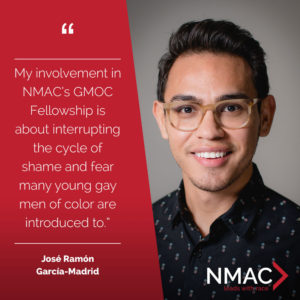
 Imagine if you will being a gay black man living with HIV in the ’80s. The oppressing societal stigmas are dire. Like a carpenter sanding 100-year-old floors, Congressman Lewis removed decades of stain from our souls. For as long as he served in Congress, no civil rights bills were passed without his support.
Imagine if you will being a gay black man living with HIV in the ’80s. The oppressing societal stigmas are dire. Like a carpenter sanding 100-year-old floors, Congressman Lewis removed decades of stain from our souls. For as long as he served in Congress, no civil rights bills were passed without his support.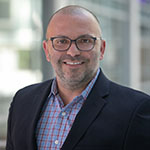
 Information about COVID-19 is rapidly changing. Our next webinar is an update on the new virus and the work that is being done in response. Dr. Stephaun E. Wallace* from Fred Hutchinson Cancer Research Center will lead the discussion. The webinar will provide an update on the COVID-19 vaccine trials and what that means to communities. NMAC is working with the
Information about COVID-19 is rapidly changing. Our next webinar is an update on the new virus and the work that is being done in response. Dr. Stephaun E. Wallace* from Fred Hutchinson Cancer Research Center will lead the discussion. The webinar will provide an update on the COVID-19 vaccine trials and what that means to communities. NMAC is working with the  The COVID-19 Prevention Network (COVPN) was established by merging four existing NIAID-funded clinical trials networks: the HIV Vaccine Trials Network (HVTN), based in Seattle; the HIV Prevention Trials Network (HPTN), based in Durham, N.C.; the Infectious Diseases Clinical Research Consortium (IDCRC), based in Atlanta; and the AIDS Clinical Trials Group, based in Los Angeles, along with other collaborators. It is important to point out how the HIV research infrastructure is supporting the search for a COVID-19 vaccine.
The COVID-19 Prevention Network (COVPN) was established by merging four existing NIAID-funded clinical trials networks: the HIV Vaccine Trials Network (HVTN), based in Seattle; the HIV Prevention Trials Network (HPTN), based in Durham, N.C.; the Infectious Diseases Clinical Research Consortium (IDCRC), based in Atlanta; and the AIDS Clinical Trials Group, based in Los Angeles, along with other collaborators. It is important to point out how the HIV research infrastructure is supporting the search for a COVID-19 vaccine. Treatment education, whether it’s about HIV or COVID-19, is core to our work. Both viruses are infectious diseases that disproportionately impact People of Color. Solutions to ending either epidemic depend upon effective treatments and/or a vaccine. As we have learned in HIV, having tools that work is only the first step. You have to be able to convince people to take the drugs or get the vaccine. That is a complex challenge. Our unequal medical infrastructure combined with a mistrust of the government can create real barriers to ending either epidemic. Black Lives Matter is about addressing these inequities in our society. The color of your skin should not impact your access to medical care and it should not determine your belief in government but, for too many, it does.
Treatment education, whether it’s about HIV or COVID-19, is core to our work. Both viruses are infectious diseases that disproportionately impact People of Color. Solutions to ending either epidemic depend upon effective treatments and/or a vaccine. As we have learned in HIV, having tools that work is only the first step. You have to be able to convince people to take the drugs or get the vaccine. That is a complex challenge. Our unequal medical infrastructure combined with a mistrust of the government can create real barriers to ending either epidemic. Black Lives Matter is about addressing these inequities in our society. The color of your skin should not impact your access to medical care and it should not determine your belief in government but, for too many, it does.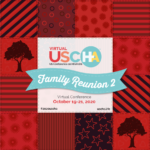
 A virtual HIV jobs fair is our response to the need to be socially distant while looking for employment. Specific times will be set aside during the 2020 conference for participants to go the Virtual Exhibit Hall to meet with organizations with job openings. NMAC is giving free exhibit booths to the 57 jurisdictions that are targeted in this federal effort. Since these health departments will receive the lion’s share of the new funding, they or other organizations in their jurisdictions will have the most jobs to fill.
A virtual HIV jobs fair is our response to the need to be socially distant while looking for employment. Specific times will be set aside during the 2020 conference for participants to go the Virtual Exhibit Hall to meet with organizations with job openings. NMAC is giving free exhibit booths to the 57 jurisdictions that are targeted in this federal effort. Since these health departments will receive the lion’s share of the new funding, they or other organizations in their jurisdictions will have the most jobs to fill. Full time professional employment for the communities hardest hit by HIV equals racial and social justice for communities disproportionately impacted by racism, transphobia, homophobia, and sexism. We have the ability to transform the discussion of racial justice in America by just doing our jobs and hiring people from the communities hardest hit by HIV.
Full time professional employment for the communities hardest hit by HIV equals racial and social justice for communities disproportionately impacted by racism, transphobia, homophobia, and sexism. We have the ability to transform the discussion of racial justice in America by just doing our jobs and hiring people from the communities hardest hit by HIV. To support people looking for jobs and to help organizations looking to hire, USCHA needs
To support people looking for jobs and to help organizations looking to hire, USCHA needs  The
The  Last week more than 600 people registered to attend one of the three webinars that NMAC hosted to discuss the virtual platform and to get feedback on priority workshops. Attendees shared that they wanted workshops that address:
Last week more than 600 people registered to attend one of the three webinars that NMAC hosted to discuss the virtual platform and to get feedback on priority workshops. Attendees shared that they wanted workshops that address: Per feedback received, attendees are looking for guidance on what HIV services they should prioritize and how to provide those services. Community especially wants and needs guidance from funders about what they will support in the next iteration of our work. Here are some of the topics that were suggested:
Per feedback received, attendees are looking for guidance on what HIV services they should prioritize and how to provide those services. Community especially wants and needs guidance from funders about what they will support in the next iteration of our work. Here are some of the topics that were suggested: Participants on the webinars also said they were looking for concrete steps for their agencies to stand in support of Black Lives Matter. Everyone agreed that the work starts with education about race and racism. Here are topics participants said they would like as workshops:
Participants on the webinars also said they were looking for concrete steps for their agencies to stand in support of Black Lives Matter. Everyone agreed that the work starts with education about race and racism. Here are topics participants said they would like as workshops: As you can read, virtual workshops require much more advance work. This is not something that can be done on the plane to the meeting. Thousands of people will attend this year’s meeting, and even more will view it online after. USCHA needs your help to make this a memorable and informative experience. Thank you.
As you can read, virtual workshops require much more advance work. This is not something that can be done on the plane to the meeting. Thousands of people will attend this year’s meeting, and even more will view it online after. USCHA needs your help to make this a memorable and informative experience. Thank you.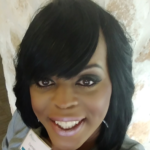
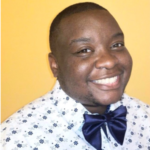
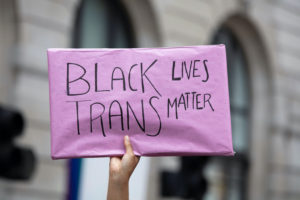
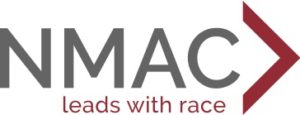

 In addition to HIV health outcomes, our movement also lacks people of color in leadership positions. The Black AIDS Institute did a survey that found “White people hold 67% of the senior leadership positions in AIDS service organizations.” Questions about race, gender, gender identity, and the sexual orientation of our leadership are part of the much wider discussion on equity, fairness and justice for communities who suffered from generational racism and oppression. To be clear, I’m not saying fire all the White people. I am saying that White leaders working in the HIV field have a unique responsibility to address race and how they will work to dismantle racist systems.
In addition to HIV health outcomes, our movement also lacks people of color in leadership positions. The Black AIDS Institute did a survey that found “White people hold 67% of the senior leadership positions in AIDS service organizations.” Questions about race, gender, gender identity, and the sexual orientation of our leadership are part of the much wider discussion on equity, fairness and justice for communities who suffered from generational racism and oppression. To be clear, I’m not saying fire all the White people. I am saying that White leaders working in the HIV field have a unique responsibility to address race and how they will work to dismantle racist systems. What role does racial bias play when reviewing funding requests from People of Color organizations? This bias was recently acknowledged by the University of California when they stopped using SAT or ACT scores for college admission because of the racial bias of those tests. This matters to the HIV movement because we are about to distribute millions in new funding. Look at who gets funded to understand how systems are biased against people of color and the organizations they run. If we keep operating in the same ways, how can we expect different results? It is not enough to make a statement supporting Black Lives Matter. Now is the time to create and implement systems that value the leaders and communities hardest hit by HIV.
What role does racial bias play when reviewing funding requests from People of Color organizations? This bias was recently acknowledged by the University of California when they stopped using SAT or ACT scores for college admission because of the racial bias of those tests. This matters to the HIV movement because we are about to distribute millions in new funding. Look at who gets funded to understand how systems are biased against people of color and the organizations they run. If we keep operating in the same ways, how can we expect different results? It is not enough to make a statement supporting Black Lives Matter. Now is the time to create and implement systems that value the leaders and communities hardest hit by HIV. This is where the hard work begins. Community-based organizations, health departments, national organizations, and federal HIV agencies who want to end the HIV epidemic must address racism and its structural impact on America’s HIV outcomes. The work to build antiracist institutions starts with education. Understanding White privilege, unconscious implicit bias, and structural racism are essential before building plans.
This is where the hard work begins. Community-based organizations, health departments, national organizations, and federal HIV agencies who want to end the HIV epidemic must address racism and its structural impact on America’s HIV outcomes. The work to build antiracist institutions starts with education. Understanding White privilege, unconscious implicit bias, and structural racism are essential before building plans.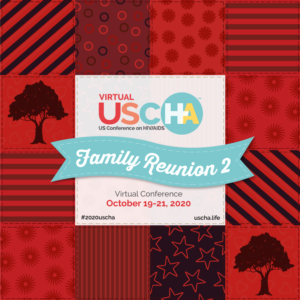
 The meeting is free because it seemed tone deaf to ask for money when so many nonprofits are hurting and there are over 40 million people unemployed. Free registrations* are for community and only possible because our 2020 sponsors stepped up and continued to support the meeting. NMAC thanks our Presenting Sponsor Gilead, along with ViiV Healthcare, Janssen, Merck, and our Federal Partners, including the National Institutes of Allergy and Infectious Diseases. While registration is free, NMAC will ask for donations. You do not have to give, but I hope you will consider making a donation. Even with the sponsor fees, the board had to approve deficit spending to keep the agency whole during these challenging times.
The meeting is free because it seemed tone deaf to ask for money when so many nonprofits are hurting and there are over 40 million people unemployed. Free registrations* are for community and only possible because our 2020 sponsors stepped up and continued to support the meeting. NMAC thanks our Presenting Sponsor Gilead, along with ViiV Healthcare, Janssen, Merck, and our Federal Partners, including the National Institutes of Allergy and Infectious Diseases. While registration is free, NMAC will ask for donations. You do not have to give, but I hope you will consider making a donation. Even with the sponsor fees, the board had to approve deficit spending to keep the agency whole during these challenging times. The murder of George Floyd was another in a too long list of wake-up calls that Black Lives Matter. The issue is bigger than just the police. It was also a wake-up call for the HIV movement. The majority of people living with HIV are people of color and the majority of people on PrEP are white. Our HIV outcomes document the challenges that race plays in our field. NMAC challenges community-based organizations, health departments, health centers, national organizations and federal agencies to create and implement strategic plans to build antiracist HIV institutions.
The murder of George Floyd was another in a too long list of wake-up calls that Black Lives Matter. The issue is bigger than just the police. It was also a wake-up call for the HIV movement. The majority of people living with HIV are people of color and the majority of people on PrEP are white. Our HIV outcomes document the challenges that race plays in our field. NMAC challenges community-based organizations, health departments, health centers, national organizations and federal agencies to create and implement strategic plans to build antiracist HIV institutions. New programs at the 2020 USCHA include a Virtual Jobs Fair. Over 40 million people are unemployed. USCHA hopes to bring people needing jobs together with the HIV organizations who are hiring. Over $300 million in new funding was in the 2020 federal budget to end the HIV epidemic and that means thousands of new jobs. NMAC is giving free booths to the 57 jurisdictions targeted to receive this money so they or organizations in those jurisdictions can share job openings. Hire people from the communities your efforts hope to reach, particularly people in senior leadership positions.
New programs at the 2020 USCHA include a Virtual Jobs Fair. Over 40 million people are unemployed. USCHA hopes to bring people needing jobs together with the HIV organizations who are hiring. Over $300 million in new funding was in the 2020 federal budget to end the HIV epidemic and that means thousands of new jobs. NMAC is giving free booths to the 57 jurisdictions targeted to receive this money so they or organizations in those jurisdictions can share job openings. Hire people from the communities your efforts hope to reach, particularly people in senior leadership positions. Virtual conferences are another result of COVID-19. While we’ve gotten more adept at Zoom calls, virtual conferences are new. NMAC will host a series of webinars to help attendees get the most out of the meeting.
Virtual conferences are another result of COVID-19. While we’ve gotten more adept at Zoom calls, virtual conferences are new. NMAC will host a series of webinars to help attendees get the most out of the meeting.  Given these turbulent times, USCHA has decided to return to our 2017 theme, Family Reunion II. Family are more than blood. They are the people you want to hug when you should be socially distant. NMAC remains committed to Puerto Rico. The 2022 USCHA will be in San Juan
Given these turbulent times, USCHA has decided to return to our 2017 theme, Family Reunion II. Family are more than blood. They are the people you want to hug when you should be socially distant. NMAC remains committed to Puerto Rico. The 2022 USCHA will be in San Juan  on Oct 10-13, 2022 and there will be a Spanish language track at this year’s meeting. This Friday is Juneteenth and NMAC will be closed. On this day we celebrate the emancipation of the last enslaved African Americans by the Confederacy.
on Oct 10-13, 2022 and there will be a Spanish language track at this year’s meeting. This Friday is Juneteenth and NMAC will be closed. On this day we celebrate the emancipation of the last enslaved African Americans by the Confederacy. This weekend I joined thousands of people who protested on the streets of DC. Walking with my mask, I was amazed at the diversity. Families of all races, all genders, and all sexual orientations came together in a peaceful protest. It was actually more like a celebration. People were dancing, drumming, singing, and chanting. There were no leaders, just concerned citizens who felt compelled to make their voices heard, even in the middle of COVID-19. I heard one father explain to his child that they were there to witness history and to fight to make the world a better place.
This weekend I joined thousands of people who protested on the streets of DC. Walking with my mask, I was amazed at the diversity. Families of all races, all genders, and all sexual orientations came together in a peaceful protest. It was actually more like a celebration. People were dancing, drumming, singing, and chanting. There were no leaders, just concerned citizens who felt compelled to make their voices heard, even in the middle of COVID-19. I heard one father explain to his child that they were there to witness history and to fight to make the world a better place.
 I just so happened to arrive when DC Mayor Muriel Bowser stepped on to Black Lives Matter Plaza. It was an honor to see her amazing protest art in front of the White House. Her leadership as a Black woman at this critical moment added to the peaceful and celebratory nature of the protests. She was a rock star and I honor her vision, strength, and courage to step up and be heard. I also loved that her mask matched her t-shirt.
I just so happened to arrive when DC Mayor Muriel Bowser stepped on to Black Lives Matter Plaza. It was an honor to see her amazing protest art in front of the White House. Her leadership as a Black woman at this critical moment added to the peaceful and celebratory nature of the protests. She was a rock star and I honor her vision, strength, and courage to step up and be heard. I also loved that her mask matched her t-shirt.











 One important step, especially during these difficult financial times, is to hire people of color, people of trans experience, Black women, and gay men. Our movement is about to experience the largest influx of new funding in the last two decades. Thousands of new people will be hired to carry out the various programs to end the HIV epidemic. Hire people who live in and are part of the communities our work hopes to reach. Employment is a critical social determinant of health and an important step towards racial justice.
One important step, especially during these difficult financial times, is to hire people of color, people of trans experience, Black women, and gay men. Our movement is about to experience the largest influx of new funding in the last two decades. Thousands of new people will be hired to carry out the various programs to end the HIV epidemic. Hire people who live in and are part of the communities our work hopes to reach. Employment is a critical social determinant of health and an important step towards racial justice.